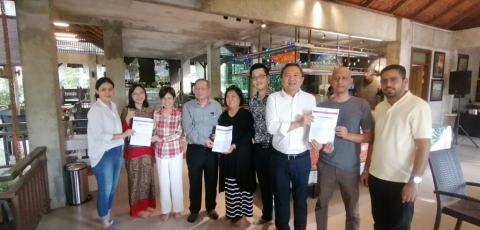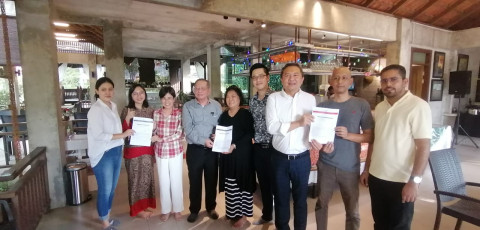
The Covid-19 crisis has brought about a new paradigm shift about understanding employee relations. A new normal requires new approaches and solutions. This would require a new strategy to reshape our Industrial relations in this country that is compassionate and rooted in social solidarity which is aligned to ILO conventions.
One glaring weakness in the current crisis is there is lack of consensus and representation on how the nation should move forward in the post MCO period. Consensus is vital in moving forward even more when the Department of statistics of Malaysia (DOSM) has predicted the country is heading into an economic recession in the next four to six months.
In the Malaysian Economic Statistics review, chief statistician Datuk Seri Mohd Uzir Mahidin said that their research was based on the latest leading indicators and dynamic measures are required to transform the current economic structure.
According to him the economy is heavily dependent on commodities-based industries and low value-added industries which hire low-skilled and semi-skilled workers who are earning low wages. Consequently, the share of Malaysia’s compensation of employees to the economy is relatively low compared to advanced economy.
It is obvious that this has also affected our social security system where the savings of low skill workers is inadequate to the demands and challenges that comes with pandemic, and illness.
Here are few areas that should be considered by the Government in seeking consensus of employers and unions to reconfigure the industrial economic structure and enhancing social security of workers.
Tripartite meeting
First and foremost, it has become imperative for the government, employers and unions and relevant stake holders to come to gather to shape a new policy and direction for Post MCO. A tripartite meeting should be expediated. The views of employers’ unions and stake holders such as gig workers and self-employed should be considered by the government on reviving the economy. Currently the Employers and Unions are moving in two parallel road paths that are unhealthy and detrimental to the wellbeing of the nation in the long run.
Moving up the value chain
In this tripartite meeting a consensus should be reach in upgrading industries to new technology that incorporates digitalisation, automation and green technology. There should be commitment to move up the value chain by training and development of workers so that they could obtain better compensation. Low level jobs should be upgraded by offering professional courses and certification. For example, a housekeeping maid who works at a hotel should be professionally certified with a reasonable remuneration.
A new social contract
Moving up the value chain should inspire a new social contract that is based on the concept of solidarity. The terms of this contract must include a labour protection floor for all workers in areas such as fundamental rights, adequate living wage, maximum working hours, retrenchment benefits, and health and safety, besides addressing employment in the new norm where there should be greater protection for self- employed, gig workers, migrant workers. and cementing a flexible work hour.
Freedom of Association
Fundamental rights should pave way towards freedom of association that would do away with legislation that restricts legitimate trade union activities. The Covid-19 crisis as shown the asymmetric relations between employer and employees that has resulted in lack proper engagement among Corporate organisations on how to reduce retrenchment.
Social Protection
In the latest ILO’s latest analysis of the catastrophic effect of COVID-19 on working hours and earnings shows that in the next few months there could be a loss of 195 million full-time equivalent jobs, with 125 million in the Asia-Pacific region, 22 million in Africa and 29 million in the Americas. With unemployment at a level not seen since the Great Depression of the 1930s, the scale of human devastation now extends beyond the risk of contracting COVID-19 to the risk of destitution including malnutrition and starvation. Without work, without an income, workers like single mothers with several children would not have money to feed her family. The lack of paid sick leave, and high levels of informal workers including workers who rely on platform business, freelancers, contractors and the self-employed with no employment contract make income security so precarious.
Malaysia which is part of global family lacks adequate resources for social protection where employer and employees contribute without the participation from the government in terms of allocation. We are not financially equipped for long term social security protection especially in health care, education and housing. There is a need to reframe what social security really means for the future of workers in this country. Social security should from a holistic perspective.
Therefore, its time the Government convene a tripartite meeting involving stake holders which consists of employers, unions, with economic experts and, technocrats playing an advisory role. A consensus should be reach in creating a new paradigm in Industrial relations that cements the responsibility and commitment in training workers on new technology, certifying workers, freedom of association, enhancing working conditions and social security that reflect social solidarity.
M. Kula Segaran
Member of Parliament for Ipoh Barat, Perak National Vice-Chairman of the Democratic Action Party Former Human Resources Minister, Malaysia 3rd June 2020



